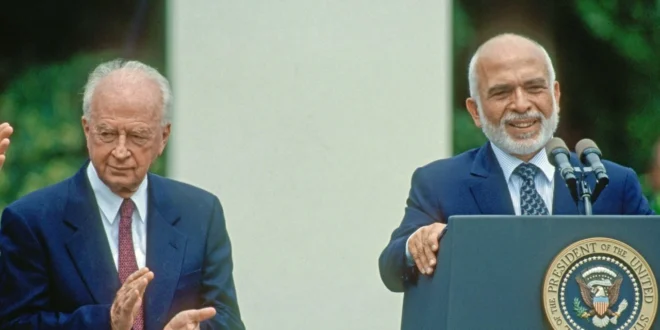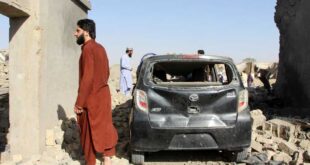By Dr. Shehab Al Makahleh
As the 30th anniversary of the 1994 Wadi Araba Treaty between Jordan and Israel approaches, the significance of this enduring peace agreement remains as complex as it is vital for regional stability. Over three decades, the treaty has fostered essential security, economic, and diplomatic cooperation between these neighboring nations. Yet, deep-rooted tensions persist, exacerbated by shifting political climates, regional conflicts, and increasing pressures from various internal and external actors. Recent escalations in Gaza and diplomatic strains over Jerusalem’s holy sites highlight the delicate balance that both Jordan and Israel must navigate to maintain their peace agreement amid widespread geopolitical volatility.
Historical Context and Benefits of the Treaty
Signed on October 26, 1994, the Wadi Araba Treaty marked Jordan as the second Arab country, after Egypt, to establish formal peace with Israel. This agreement not only opened diplomatic channels but also brought crucial economic and security benefits to both states. Under the terms, Israel annually provides Jordan with 100 million cubic meters of water—a critical resource for Jordan, one of the most water-scarce countries in the world. In 2016, a $10 billion, 15-year natural gas deal provided Jordan with about 40% of its gas needs, strengthening energy security and reducing reliance on more volatile energy sources.
For Israel, the treaty fortified the security of its longest border and granted valuable strategic depth, particularly concerning threats from Iran and its regional allies. Israel’s strategic advantage extends to missile defense systems, which Jordan’s cooperation has significantly enabled. This partnership enhances Israel’s early-warning capabilities and broader defense against Iranian missiles and drones.
Political Tensions and Domestic Pressures
The relationship, however, is burdened by significant political and social obstacles. Jordan’s demographics—a population that is approximately 60% of Palestinian origin—mean that public sentiment toward Israel remains sensitive to developments in Gaza and the West Bank. This was evident in the aftermath of the October 7 attacks and the subsequent war between Israel and Hamas, which sparked widespread pro-Palestinian protests in Jordan. Political representation also reflects this divide: Jordan’s Muslim Brotherhood, which controls the largest parliamentary bloc, has voiced support for Palestinian groups opposing Israel.
Such tensions are exacerbated by Jordan’s perception that Israel is infringing upon its custodial role over Jerusalem’s holy sites, a role formally acknowledged in the Wadi Araba Treaty. Israeli government actions affecting the status quo of these sites are a particular point of contention, straining Jordan’s domestic patience with the peace accord and giving rise to calls for its revocation.
Regional Security Dynamics and External Threats
Iran’s expansionist policies and proxy networks in Syria, Lebanon, and Iraq have made both Jordan and Israel targets of Iranian destabilization efforts. Iran and its regional allies have engaged in cross-border narcotics trafficking, particularly with Captagon, alongside arms smuggling into Jordan. This tactic not only aims to disrupt Jordan’s security but also to weaken its economy, aggravate public discontent, and potentially sway Jordan’s political direction against maintaining its peace agreement with Israel.
Israel, too, faces heightened security risks, with Iranian missile and drone strikes threatening its territory. The Israel-Jordan security cooperation, despite its often quiet nature, has been a critical element in countering these threats. The peace treaty has, therefore, evolved into more than a diplomatic accord; it is an operational partnership essential to containing Iran’s influence.
Balancing Benefits with Enduring Challenges
Thirty years on, the Wadi Araba Treaty remains a cornerstone of regional stability, benefiting both Jordan and Israel in economic, security, and diplomatic domains. However, the relationship’s long-term sustainability depends on navigating the complex interplay of regional security threats, domestic political dynamics, and the shifting policies of larger geopolitical actors such as the United States.
With the Middle East at an inflection point, Jordan and Israel’s commitment to their peace treaty may serve as a model of pragmatic coexistence. Nonetheless, the treaty’s future will require careful recalibration to address each country’s national interests, regional realities, and domestic pressures, underscoring that in today’s Middle East, even the strongest alliances are not immune to the forces of change.
 Geostrategic Media Political Commentary, Analysis, Security, Defense
Geostrategic Media Political Commentary, Analysis, Security, Defense





